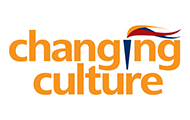Leading change
Cultural change for diversity and transformation

Realistic demographics
Major strides towards establishing a truly changed culture have been made over the past decades. The university's student demographics now closely approximate those of the country: more than 73% of Unisa students are African, 15% white, 6% Indian and 6% coloured. The number of female students has shown steady year-on-year growth and currently females account for 63% of the student population.
Unisa's staff profile has also shown a major trend towards true transformation in recent years. Since 2010, the proportion of African staff has seen significant growth from 55% to close on 64%.
Addressing patriarchy through gender activism
Scholarship that addresses gender issues and questions is important as it contributes to overcoming the challenges of gender transformation in society. South Africa and Africa also require home-grown solutions to tackle gender issues. Leading the university’s focus on gender equitability is the Institute of Gender Studies, located in the College of Human Sciences. An interdisciplinary research unit, the institute raises awareness about gender as a major step towards eliminating gender-based violence, homophobia and transphobia, as well as discrimination against women in the workplace and the political arena. A vibrant centre of high quality research, the institute publishes Gender Questions, a peer-reviewed journal aimed at promoting diverse research on gender issues in South Africa
Democratising access and success
Unisa is known as a provider of fair and equitable access to higher education opportunities. Flowing from its social responsibility to address past inequalities, Unisa has developed a new application and selection process that more effectively addresses historical imbalances without sacrificing quality standards. This process promotes focused attention towards improved student support and the alignment of our new student intake with the available academic capacity and required infrastructure to maximise all students’ chances of success.
In a major step towards improving student success despite the challenge of unequal access to technology, Unisa’s interactive online signature course project has made a transformative impact on course development and student learning. The signature course project is the first concerted effort by all Unisa colleges to present one course which has been conceptualised, designed and developed as a fully online course with online assessment and online student support. Students with restricted or no internet access receive digibands that allow them to work offline and upload the material online at an internet destination of their convenience.